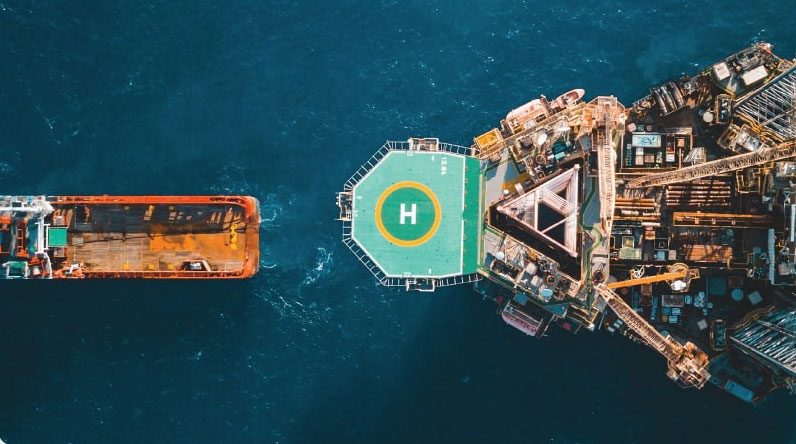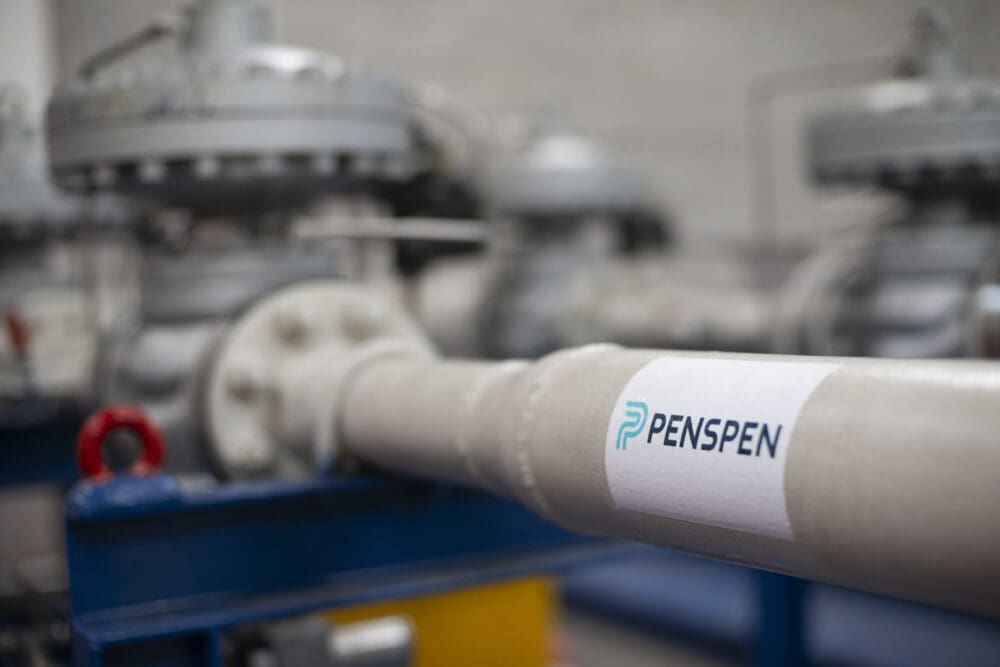Behind the Scenes – THEIA KPI Dashboards

KPI’s are a critical component in monitoring the health of any operator’s network of pipelines.
Being able to have an easily customisable view of your key performance indicators and collect data from the necessarily wide range of stakeholders, is a desirable goal, but a headache for many in the industry. It is with this in mind that key functionality for THEIA includes a highly configurable KPI dashboard with connections to a wide range of data types.
THEIA ensures that you, as an operator, are focused on being able to collect leading KPIs in an easy and collaborative manner to minimise reliance on lagging data. To this end they are divided between organisational and pipeline specific. Knowing the challenge for operators to collect the data for KPI’s THEIA has optimised the process to make this more usable and relevant.
The KPI’s can be either organisational, relating to the overall business objectives, for example:
- Percentage of Planned Documents Reviewed
- Non-Conformances
- Percent of Planned Audits Completed
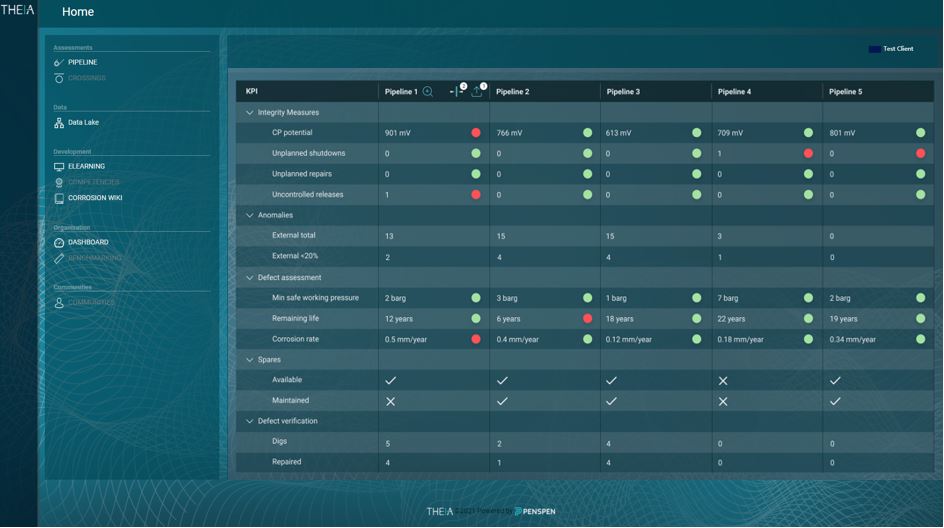
Or pipeline system specific KPI’s, for example:
- Chemical injection
- Availability
- PPM
- Anomaly status
- Spares inventory
- Remaining life
These are simply examples. As an operator, you know what information you want to be able to see that will enable you to view the health of your pipeline and organisation.
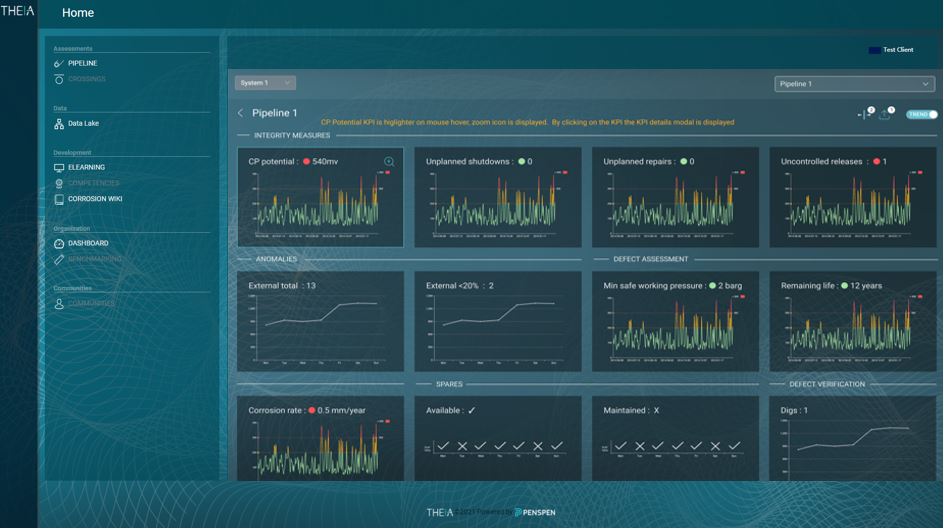
You can modify you can add or modify your KPIs at any point to make them more relevant
At any point, you can add or modify your KPI’s to make them more relevant. Your KPI data can be viewed as a data point in time or reveal a trend over a set period. Thresholds are set by you. This can be easily done using the THEIA user interface or uploaded using an excel spreadsheet. The data for the KPI’s can also be derived from any assessments and reports you have performed in THEIA.
For further information about THEIA, please contact the team: theia@Penspen.com
Insights & News
Curiosity, Commitment, and Corrosion: Our People – Yureis Villasmil
In 2025, Yureis Villasmil joined Penspen as our first in-country integrity engineer in Chile. Passionate about personal development, she shares how her her work as part of Penspen's global...

Development and Implementation of Asset Integrity Management Systems
In the case of facilities, integrity management is somewhat more complex than for pipelines, due to the nature and complexity of these types of assets, which distinguish them from a main...
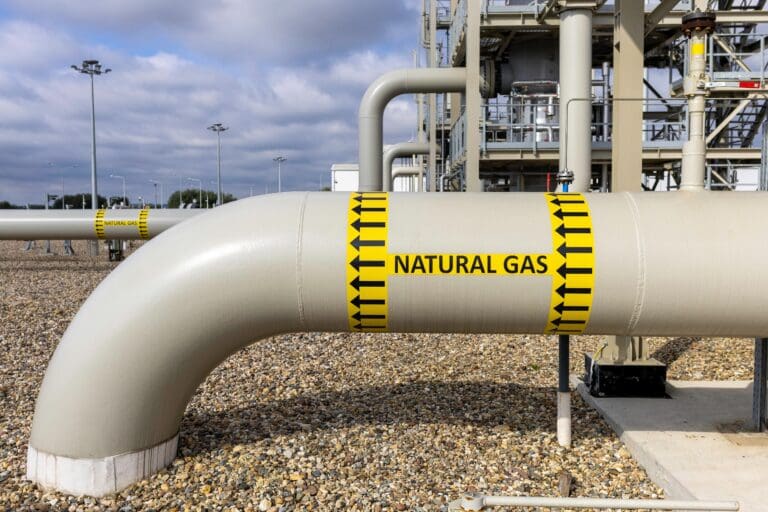
Pipeline Performance vs Dust
In the latest integrity issue of World Pipelines, Penspen Asset Integrity experts explore how dust impacts the integrity, reliability, and safety of gas transmission and distribution systems, and...

A New Landscape: Our People – Nick Molnar
Nick is a Senior Pipeline Integrity Engineer at Penspen. Since joining the team in November 2024 and relocating from Canada to Abu Dhabi, he’s been an integral part of Penspen’s Centre of...

Penspen delivers record year with $500m in contract awards in 2025
Chief Executive Officer, Peter O’Sullivan: “2025 stands out as one of the strongest commercial and delivery years in Penspen’s history.” Penspen has announced a record year, securing $500...

Penspen Awarded Major CO₂ Pipeline Study in Switzerland
International engineering consultancy Penspen has been awarded a pre-FEED study by CO₂ Pipeline Schweiz AG to support the development of a national CO₂ transport system in Switzerland. The study...

Penspen Launches Game-Changing THEIA Pockets™, Enabling Custom Analytics Securely in One Platform
New capability lets integrity engineers create, run and share their own analysis scripts within THEIA, Penspen’s digital pipeline integrity platform. International engineering consultancy Penspen...


